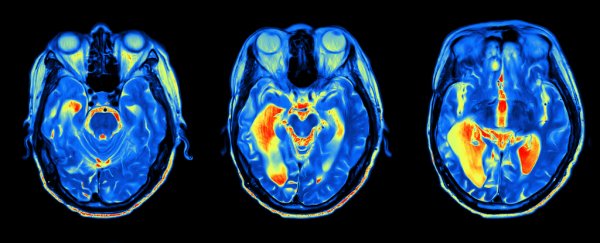Brains are the most complicated organ in our bodies. While neuroscientists are fairly certain of what certain hemispheres of the brain are responsible for, other things remain a mystery, such as why some people develop Alzheimer's.
There's also a lot of false information going around regarding brains. But what is certain is that keeping your brain young and healthy is vital – and certain exercises have been shown to stave off the effects of ageing pretty well.
According to new research, published in the journal Frontiers in Ageing Neuroscience, there could be another secret to keeping your brain youthful, and it's all to do with your mindset.
Jeanyung Chey from Seoul National University in Korea wanted to investigate the link between subjective and real brain age. She and a team recruited 68 healthy people aged 59 to 84 years and performed MRI brain scans to analyse the amount of grey matter in different areas.
The participants also completed a questionnaire about how old they were and whether they felt older or younger, and their cognitive abilities and perceived health were also assessed.
The people who said they felt younger than their age were more likely to get a better score on a memory test. Also, they appeared to consider themselves more healthy, and were less likely to be depressed.
It wasn't just down to performance, as those who felt younger also had increased grey matter volume in the inferior frontal gyrus and the superior temporal gyrus -areas associated with language, speech, and sound.
"We found that people who feel younger have the structural characteristics of a younger brain," Chey said in a statement.
"Importantly, this difference remains robust even when other possible factors, including personality, subjective health, depressive symptoms, or cognitive functions, are accounted for."
The researchers don't know for sure whether younger brain characteristics are responsible for someone's subjective age or not, but they think those who feel older may be more aware of the ageing process of their brains.
Another possible explanation is people who feel younger engage in more physical and mental activity, and lead a generally more stimulating life, that improves their brain health.
Those who feel older may have resigned themselves to their age and stopped being so agile and spritely, which impacts their cognitive abilities.
"If somebody feels older than their age, it could be a sign for them to evaluate their lifestyle, habits and activities that could contribute to brain ageing and take measures to better care for their brain health," said Chey.
This article was originally published by Business Insider.
More from Business Insider:
